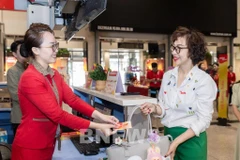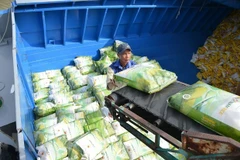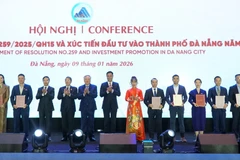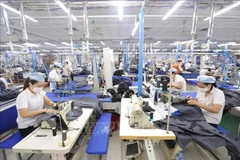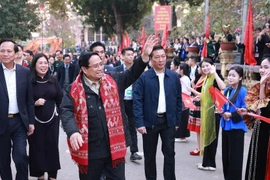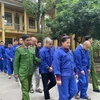Compared to 2013, the number of Vietnameseguest workers sent to Taiwan increased to 60,000 from 46,000, while thenumber in Japan rose from 9,600 to 20,000.
A total of 7,000guest workers were sent to the Republic of Korea (RoK), 5,000 toMalaysia, 4,000 to Saudi Arabia and 1,000 to Qatar. Compared to 2013,the number of workers in these four markets dropped by about 5,000.
NguyenLuong Trao, Chairman of the Vietnam Labour Export Association, said thecountry last year sent the highest number of guest workers to NortheastAsia, around 90,000, accounting for 86 percent of the total 40labour-export markets.
Tong Hai Nam, Deputy Head of the OverseasLabour Management Department, said that 2014 was not completelysuccessful for the labour-export market as all 1,750 guest workers fromLibya had to return due to political unrest, and RoK did not extend itslabour contract with Vietnam.
However, Nguyen Ngoc Quynh, Head ofthe Overseas Labour Management Department, attributed a record-high ofnumber of guest workers sent to Taiwan to the better management oflabour export companies and the policy to reduce fees for workers inTaiwan.
In addition to key traditional markets, several newlyemerging markets with high incomes will open more opportunities forguest workers, including Africa, the Middle East and Japan, according tothe Ministry of Labour, Invalids and Social Affairs.
Vietnamwill also sign agreements in several fields with Angola and Saudi Arabiathis year, which will facilitate export of labour to these countries,said the ministry.
Japan will also be a potential market forVietnamese guest workers to work in the fields of construction,mechanics and manufacturing, agriculture, and food processing from nowuntil 2020.
This year, Sovilaco company will increase its target to send guest workers to Japan to 500 guest workers, up from 300 last year.
Namsaid demand for highly skilled labour was high, but many countries didnot trust Vietnamese labour quality, especially foreign language skillsand other work skills.
In the past, highly skilled workers only had opportunities to work in RoK.
Duringthe last two years, highly skilled Vietnamese workers, especiallynurses and hospital orderlies, have had more opportunities to work inJapan and Germany as the Overseas Labour Management Department was askedby the Ministry of Labour, Invalids and Social Affairs to develop aprogramme to send guest workers to those countries.
Nam said the department was developing a project that would also provide training for highly skilled labour to send overseas.
Withbetter training and improved foreign language skills, many highlyskilled Vietnamese guest workers would have more opportunities to workabroad, Nam said.-VNA








